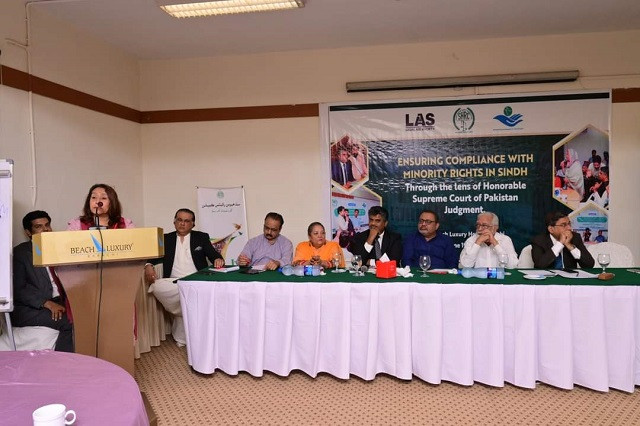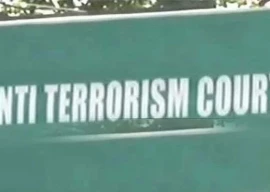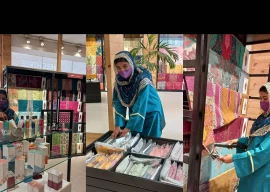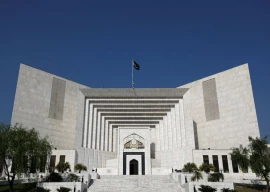
Human rights, and minority rights activists at a consultation here expressed serious concern about the non-implementation of the Supreme Court of Pakistan’s 2014 judgment on minority's rights and demanded the government to implement this landmark verdict in its true spirit.
The consultation “Ensuring Compliance with Minority Rights in Sindh through the Lens of Honorable Supreme Court of Pakistan Judgment (SMC no 1 of 2014)” was organized by the Sindh Human Rights Commission (SHRC) the other day in collaboration with National Lobbying Delegation for Minority Rights and Legal Aid Society.
Speaking on the occasion, Special Assistant to Sindh Chief Minister on human rights Mr. Surendar Valasai reiterated the Sindh government's commitment to promoting and protecting minority rights. He said that the PPP government of Sindh established the minority affairs department in 1994, which was the first such a department in any province of Pakistan.He said the provincial government is seriously making policies and laws for the protection of minority rights to foster an inclusive society in the province.
SHRC Chairperson Mr. Iqbal Detho shared the pivotal role of the Commission in addressing the minority’s issues in the province. Working diligently, the SHRC is developing a comprehensive manual on the Sindh Hindu Marriage Act and Muslim Personal Law, translated into Urdu and Sindhi languages, to be disseminated among stakeholders and communities,” he said.
The SHRC is actively engaged in formulating a dedicated chapter on Minority issues in the Human Rights Policy of the Government of Sindh, demonstrating its commitment to safeguarding the rights of minority communities. Recently, the SHRC has prepared recommendations on the implementation of the Sindh Child Marriage Restraint Act, with a particular focus on issues related to forced conversions, at the PPP Leadership Summit on Human Rights in Islamabad.Ms. Nuzhat Shirin, Chairperson of the Sindh Commission Status of Women (SCSW) appreciated the SHRC their support.
Her insights on minority issues shed light on the crucial role of #SCSW. Let's unite to incorporate #Minority Rights in education, safeguarding their rights and fostering inclusivity Mr. Karamat Ali, Executive Director of the Pakistan Institute of Labour Education and Research (PILER) emphasized that the constitution of Pakistan includes provisions safeguarding the rights of minorities.
He specifically referred to Article 3 of the Constitution, which guarantees the eradication of all forms of exploitation.Mr. Yasar Talib from the Centre for Social Justice emphasized the need to strive for effective implementation of the judgment to ensure justice for all.
Ms. Mangla Sharma, MPA, and member of the SHRC Sub Committee spoke about pressing issues surrounding minority laws. With her dedication and experience, she said she advocates for effective policy-making and empowerment of minority communities.
Ms. Ruth, a dedicated community worker narrated some harrowing stories of victims of religious discrimination and violence, especially forced conversions and underage marriages.
Religious minority voices need to be heard, he remarked.Mr. Shariq Ahmed, Secretary Minority Affairs Dept. Sindh, for applauding SHRC Chairperson's commitment to Minority Rights, dispelling religious animosity myths.
Their joint policy draft sets the stage for inclusive legislation, safeguarding minority communities' rights.Mr. Jai Parkash Moorani, a member of the National Lobbying Delegation for Minority Rights pointed out that a five per cent job quote problem still exists.
Ms. Maleeha Zia from LAS presented an overview of the Supreme Court judgment. It was the first time that judiciary took notice of atrocities against minority communities, she remarked.

1731476617-0/Sandra-Oh-(2)1731476617-0-165x106.webp)



















COMMENTS
Comments are moderated and generally will be posted if they are on-topic and not abusive.
For more information, please see our Comments FAQ